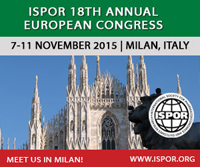Una checklist per la gestione dei costi nel trattamento dell’HIV
DOI:
https://doi.org/10.7175/fe.v1i2.715Abstract
The human immunodeficiency virus (HIV) infection is currently one of the major health problems in the world. Since the first occurrence of the infection 17 years ago until today, many people have died of its devastating consequences and an enormous amount of health-related funds have been spent on the problem. The pandemic is still growing in some areas, and its negative impact on society is in-creasing. This is the main reason why scientists are trying to find the best way to reduce costs and still keep the same level of management or, in some ways, even improve it (e.g., new combination of drugs in one pill—fewer pills to be taken per day). Since HIV infection has been. a fatal, severe, and widespread disease, a so-called global problem, very early in the course of the pandemic the idea of economic evaluation was raised. Published studies mostly presented the antiretroviral drugs in the frames of pharmacoeconomic models or costs of HIV/AIDS according to development of the disease through longer time periods. The cost sections that have to be considered in any pharmacoeconomic study of HIV management are briefly presented. Often the presented costs are confusing and could be misleading. Direct, indirect, and intangible costs are described.Downloads
Published
2000-06-15
How to Cite
Sazonov, V., Urleb, U., & Wertheimer, A. L. (2000). Una checklist per la gestione dei costi nel trattamento dell’HIV. Farmeconomia. Health Economics and Therapeutic Pathways, 1(2), 91–96. https://doi.org/10.7175/fe.v1i2.715
Issue
Section
Review (Economic Analysis)
License
Authors who publish with this journal agree to the following terms:
- Authors retain copyright and grant the journal right of first publication with the work simultaneously licensed under a Creative Commons Attribution-NonCommercial 4.0 License that allows others to share the work with an acknowledgement of the work's authorship and initial publication in this journal.
- Authors are able to enter into separate, additional contractual arrangements for the non-exclusive distribution of the journal's published version of the work (e.g., post it to an institutional repository or publish it in a book), with an acknowledgement of its initial publication in this journal. The Publication Agreement can be downloaded here, and should be signed by the Authors and sent to the Publisher when the article has been accepted for publication in this journal.
- Authors are permitted and encouraged to post their work online (e.g., in institutional repositories or on their website) prior to and during the submission process, as it can lead to productive exchanges, as well as earlier and greater citation of published work (see The Effect of Open Access).
- Authors are permitted to post their work online after publication (the article must link to publisher version, in html format)






